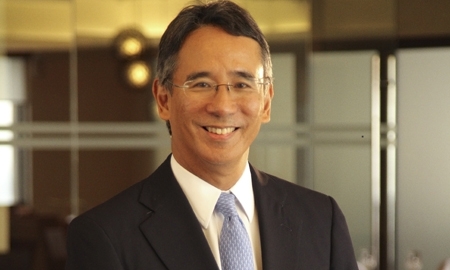The
Bank of the Philippine Islands (
BPI) is a pioneer in Philippine banking. Founded in 1851, it was not only the first bank in the Philippines, but also in Southeast Asia. Over the years it has distinguished itself by catering to the ever-evolving needs and lifestyles of the public with numerous innovations and firsts. From issuing the country’s first paper money and introducing branch banking, ATMs and debit cards, to financing its first telephone system, electric power utility and steamship service, BPI has consistently led the nation’s banking industry.
The bank’s latest electronic innovations – such as BPI Express Link, BPI Express Online, BPI Express Bills, BPI Trade and BPI Express Cash Card – enable customers to conveniently access a wide range of transactions and services either in person at a branch or by telephone, internet or mobile phone and effectively bank anywhere.
“As we say internally, BPI gives people the power to choose and we make it easy for the customer. People know they will get good value with BPI,” says Aurelio R Montinola III, President and CEO of BPI.
Following a 2011 that was “both challenging and exciting”, according to the CEO, BPI maintains its lead as the most profitable bank in the Philippines. Last year the country’s third biggest bank by asset size posted 13.4 per cent growth in net income, rising to P12.8 billion (£187.3 million), compared to P11.3 billion in 2010. This translates into a return on equity (ROE) of 15.2 per cent and a return on assets (ROA) of 1.6 per cent.
Also in 2011 the bank grew its loan portfolio by 20 per cent, reaching P453.31 billion, and total non-performing loans dropped from P5.90 billion in 2010 to P5.35 billion last year. “Assets under management grew almost 40 per cent and our loan-to-deposit ratio significantly increased [from 54 to 68 per cent],” says Mr Montinola. The company also exceeded its five million-customer goal during its 160th anniversary year.
This year, net income doubled to P5.8 billion in the first quarter from P2.8 billion a year ago, and BPI’s market capitalisation stood at P263 billion at the end of March, with a Basel 2 capital adequacy ratio of 15.5 per cent.
“BPI gives people the power to choose and
we make it easy for the customer” Aurelio R Montinola III,
President and CEO of BPI |
Part of the mighty Ayala Corporation, in 2010 BPI partnered with its sister firm Globe Telecom and the parent company to establish BPI Globe BanKO, the first mobile-based, microfinance-focused savings bank in the Philippines, created with small and medium-sized enterprises (SMEs) – particularly in agribusiness – in mind. “We are very involved with SMEs and the growth rate there is from 15 to 20 per cent,” says Mr Montinola. “We have been a leader in consumer banking for the longest time; the growth rates there are trending at around 15 per cent. Our new mobile and microfinance programme BanKO targets another sector, which is going to be quite interesting.”
BanKO aims to provide the low-income segment with secure and convenient access to affordable financial services by leveraging on the combined banking assets and telecom infrastructure of BPI and Globe. It has devised a ‘branchless’ banking method of service delivery through a network of partner outlets equipped with information and communication technologies of the two companies. The bank also wants to provide financial inclusion to the country’s unbanked population and extend access to formal financial services, especially in remote areas, through partnerships with microfinance institutions, i.e. rural banks, NGOs and cooperatives. It recently teamed up with two retail chains, Tambunting pawnshops and Generika drug stores, which will perform cash transactions and savings and loan applications on BanKO’s behalf.
BPI was named one of 14 global winners of the IFC-administered G-20 Finance Challenge Award for its innovative Sustainable Energy Finance (SEF) scheme focused on energy-saving solutions for SMEs. The bank is the only institution from East Asia to win this prestigious award, where more than 200 entries competed across the globe.
Under guidance and advice from the SEF programme, BPI’s clients have been able to reduce energy use by 142,000 megawatt hours and generate renewable energy of 208,200 megawatt hours each year. The efforts have resulted in reducing greenhouse emissions by 527,900 tonnes annually.
The G20 award comes with a $1.2 million grant, which the bank plans to put towards further educating SMEs in energy-efficiency and renewable-energy projects.
“We will do exactly the same in agribusiness,” says Mr Montinola.
Internationally, BPI is the number one bank for Overseas Filipino Worker (OFW) remittances and is also the largest Philippine investor in the UK. It has made London its European headquarters and plans to expand into the EU under its subsidiary, BPI Europe Plc. “We are using the UK as a window into Europe and also the Middle East,” says Mr Montinola.
“In the UK, we have already set up risk management systems. We are now moving into the second phase, which is called ‘passporting,’ and converting our remittance offices in Italy and Spain into branches of BPI Europe, so that instead of just doing remittances we can offer banking products.
“There are about 8 or 9 million Filipinos worldwide. Estimates suggest there are from 500,000 to a million Filipinos in Europe, and also anywhere from 1.5 to 2 million in the Middle East, so you are really looking at a potential customer base of 3 million.”

0 COMMENTS